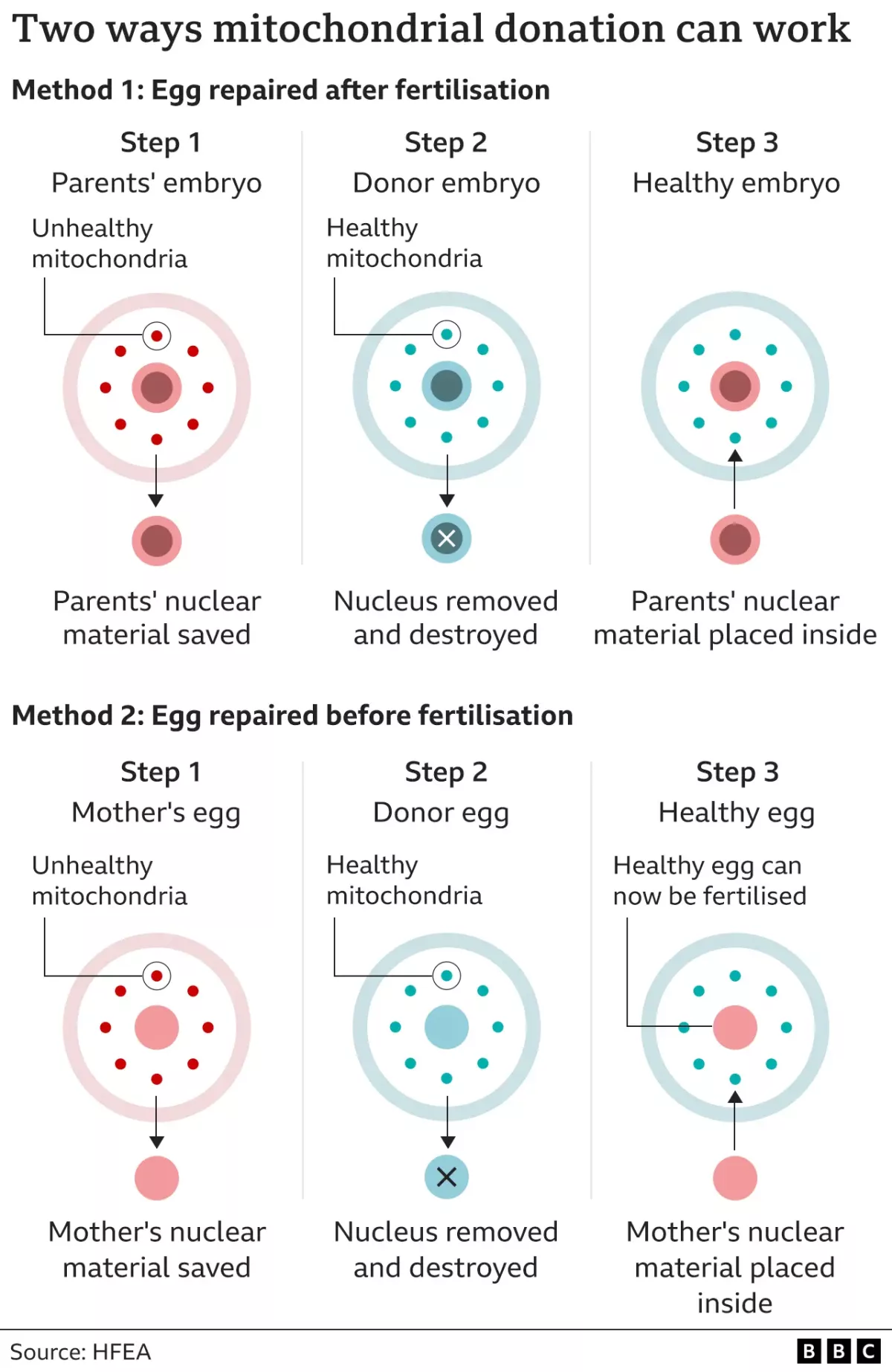Multiple babies born in Britain after scientists used DNA from three "parents" to avoid genetic disease
Doctors in the UK have confirmed the birth of eight healthy babies through a pioneering IVF technique that uses DNA from three different people to prevent the transmission of incurable genetic conditions. This breakthrough marks a significant step forward in reproductive medicine and offers hope to families affected by mitochondrial diseases, which can be fatal within days or hours after birth.
The innovative procedure involves combining DNA from the mother and father with a tiny amount—around 0.1%—from a female donor. While the majority of the child’s genetic material comes from their biological parents, the donor contributes healthy mitochondria, the energy-producing structures in cells. This contribution is critical in preventing the onset of mitochondrial disorders, but as an article by the BBC points out, it does not influence traits such as appearance or personality.
The technique is not considered to create a "third parent" in the conventional sense. Though mitochondria contain their own DNA, the donor’s contribution is limited solely to mitochondrial function and does not affect the child’s core genetic identity.
Mitochondrial diseases are devastating and currently incurable, often leading to severe conditions like brain damage, heart failure, muscle degeneration, and blindness. These diseases are passed down exclusively by the mother, and families who carry faulty mitochondrial genes have historically had no way to prevent transmission to their children. Some families have suffered the loss of multiple children due to these illnesses.

Mitochondrial donation offers a promising alternative. It involves a modified form of IVF in which the nucleus from the mother’s egg is transferred into a donor egg containing healthy mitochondria, either before or after fertilisation. The egg is then fertilised with the father’s sperm, resulting in an embryo free from the defective mitochondrial DNA.
The procedure was legalised in the UK in 2015, making it the first country to formally approve mitochondrial donation under regulatory oversight. The Human Fertilisation and Embryology Authority (HFEA) granted the first licence for the technique in 2017 to a team at Newcastle University, which had been at the forefront of the research. However, implementation progressed cautiously, and few births occurred in the years that followed.
The UK’s milestone follows an earlier case in 2016, when a Jordanian family underwent mitochondrial donation in the United States, resulting in the birth of the world’s first baby conceived with this method.
As of April 20, 2023, the HFEA has confirmed that fewer than five such births had occurred in the UK, a number now updated to eight. However, precise details about the families or the exact number of births remain undisclosed to protect patient confidentiality.
This long-awaited announcement has garnered attention from the global medical community, which has been closely watching the UK’s cautious rollout of the technique. With these successful births, doctors hope the method can become a standard option for affected families, offering them a chance to raise healthy children free from inherited mitochondrial disease.
By Nazrin Sadigova








